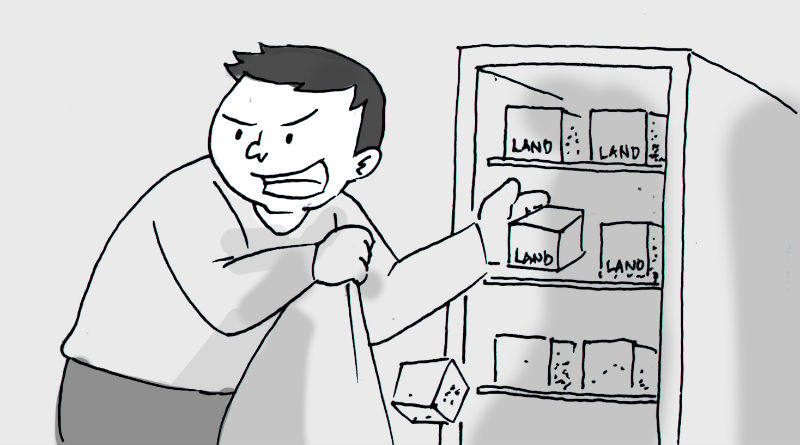The ancestral domains of indigenous all over the country are the repositories of minerals and metals, hydropower, vast forests and lands, diverse flora and fauna, exotic destinations, among other resources. In 1997, Republic Act (RA) 8371 or the Indigenous Peoples Rights Act (IPRA) was enacted that mandates any development actor, government or not, to seek the free prior and informed consent (FPIC) of indigenous peoples (IPs) prior to the introduction of any development within their ancestral domain. While IPs need development interventions, these must be in line with their self-determined priorities and implemented with them as partners, not as beneficiaries. Many indigenous communities prefer to develop their traditional way of living at their own pace as they strive to claim their right to development with government support.
The entry of corporate development in ancestral domains, has caused intra-community and inter-village/tribal conflicts as opportunistic indigenous individuals, mostly so-called educated professionals, have taken advantage of the FPIC process to ensure their personal economic gain and corrupt the indigenous governance and decision-making process. In the end, their own peoples are the ones suffer from the negative consequences the development projects bring to their communities. But worse, their communities are left fragmented, their indigenous institutions corrupted, and indigenous values like respect for consensus decision-making process facilitated by elders disregarded. The experiences of the past, particularly during the opening of the mines and the building of the power plants, are too fresh to be forgotten. These are valuable lessons for discerning indigenous individuals and groups as guide to how their ancestral domain is not to be developed. More importantly, indigenous peoples demand meaningful participation as equal partners in the development process and must reap the fruits of development as communities and peoples, not for a few educated opportunist IPs.
Various regulations are in place by concerned government agencies to help in the realization of the true intention of existing laws, rules and regulations governing environmentally-critical projects. The presence of companies in the extractive industry which continue to violate, circumvent and opening ignore these measure is a slap in the face of the government, especially those agencies and offices which are responsible for the full enforcement of these measures. These facts creates the impression of some government agency personnel and officers, and government officials, being in cohorts in these crimes against the indigenous peoples and the environment.
The contribution of the extractive industry to the country’s gross domestic product (GDP) had been time and again been questioned. Industry players claim that they have developed the communities in their areas of operation by the employment they provided to the people, the infrastructures they infused, the sources of livelihood created, the improved quality of education provided to the residents and the enhanced delivery of basic services, and others. Of course, the extractive industry needs healthy and well-provided workers to produce the wealth they are enjoying. However, these are services that the State is obligated to provide. In other words, the government is also absconding on its duty to comply with its obligation to provide the basic services to its citizens. Overall, the performance of the extractive industry in the promotion of the well-being of citizens within their areas of operation is still dismal. The industry must demonstrate to those suffering indigenous and local communities that they are responsible by addressing the many issues that have already been put upfront to them but had long been ignored. The human rights violations, including the right to decent wage, and deaths, due to these struggles against the extractive industry, which includes plantations, have to be given justice. This means the ultimate responsibility for the redress all these violations lies the government. The government must hold all industry players who have violated the laws of the land to be accountable. On the part of the industry, it must police its own ranks by imposing international standards in all the phases of development of their sites among the members.
For indigenous peoples, we call out our own co-indigenous individuals who have sold us out to respect the decision of communities and not be a party to the violation of our rights. We have the value of “inayan” which teaches us to avoid putting someone, or others into jeopardy. We have lost our values when we are a party to the maldevelopment of our communities and the suffering of our people. What we do not realise are the long-term effects of our actions. INAYAN.
While we must bank on the rich resources of the Cordillera to help advance our material progress, let us not forget our generational obligation to sustain our identity, one that is rooted in our ancestral domain as our culture is rooted in who we are. Let us not forget then our obligation to work for the sustainable preservation, protection and development of our ancestral domain. We must not forget the values passed on to us by our forebears, as we must also pass these on to the next generations without mutilating the same. Let not the glitter of gold blind us to the extent of selling out our peoples.
Some of us have benefited from the largest of the extractive industry. However, we must realize that this is not the whole truth. A good practice cannot cure or assuage the experiences of a bad one. We must not trivialize the bad experiences of communities but call on those responsible to redress these concerns. We must continue to speak of these bad practices to help the industry to shape up. Or else, ship out. In the end, we indigenous peoples must support each other in the respect, protection and fulfillment of our rights.













